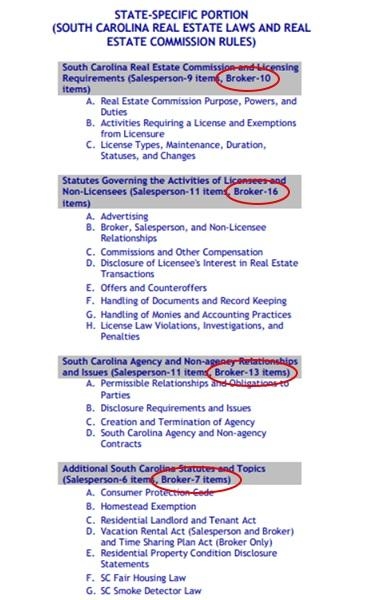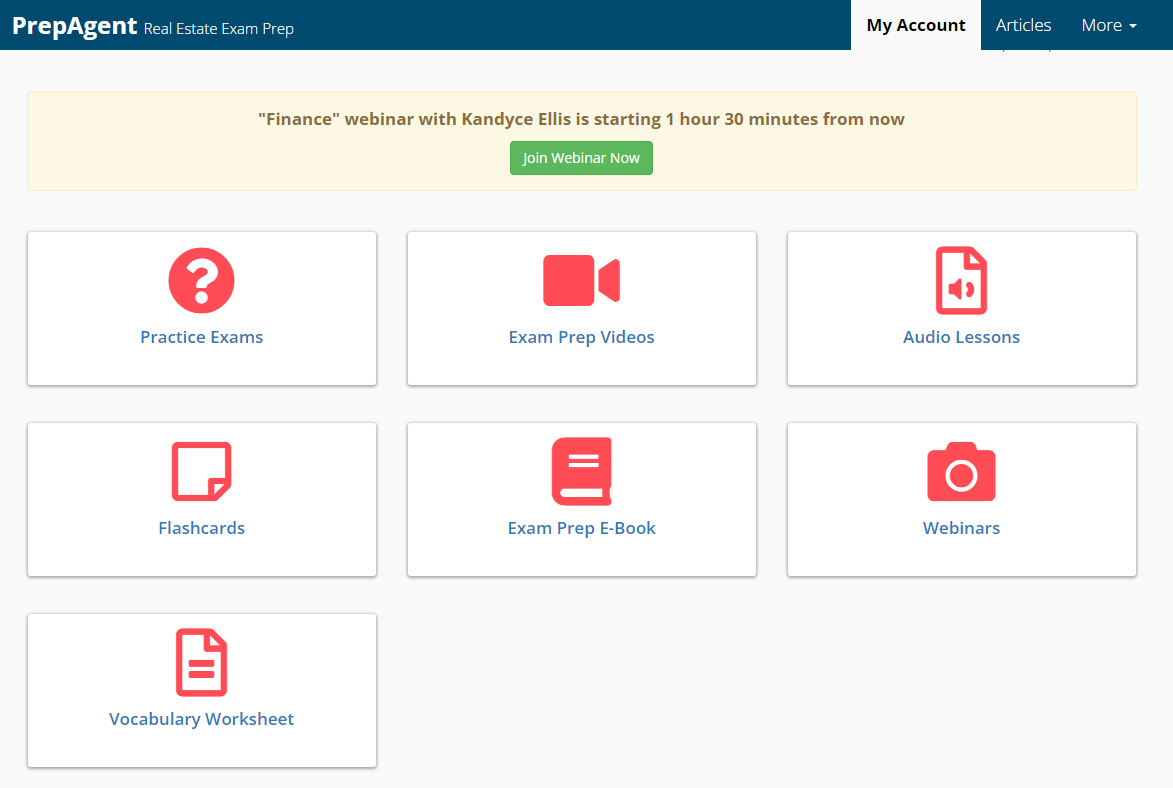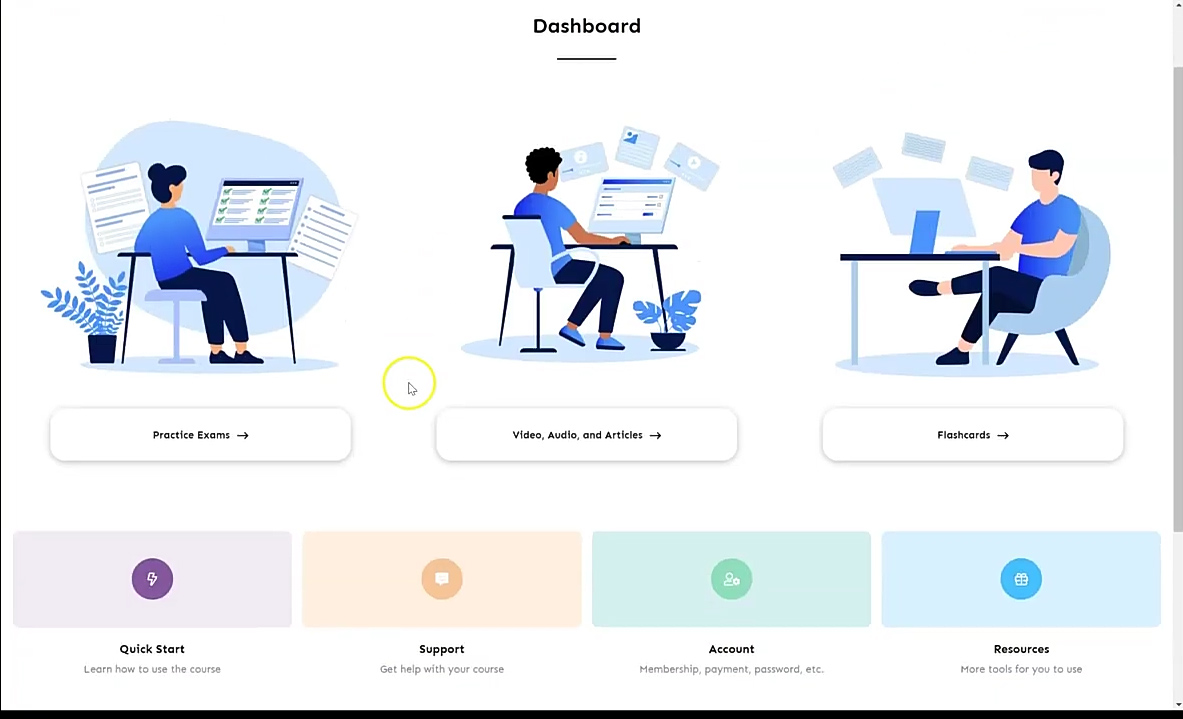To become a real estate broker, you are required to pass a state exam and submit an application. When preparing for the real estate broker exam, you must review your state’s broker requirements, complete prelicensing courses, and understand the exam structure. With the right tools and a strong study schedule, you’ll learn how to pass the real estate broker exam with flying colors.
1. Review Your State’s Broker Exam Requirements
To become a real estate broker, you must meet your state’s broker licensing requirements. In most states, these requirements involve a specified period of time as a licensed real estate agent, typically about one to two years. Once you meet this requirement, you can complete the required broker prelicensing education and the necessary paperwork before being able to take the broker license exam.
These requirements can vary significantly from state to state. For instance, the requirements to become a real estate broker in Texas are at least four years of active experience as an agent, while New York requires only two years. In addition, aspiring Texas brokers must complete 270 hours of prelicensing broker courses, while New Yorkers only need to complete 152 hours.
Learn more about each state’s broker license requirements on this map:
State-by-state Broker License Requirements
2. Understand the Exam Structure & Process
In every state, the real estate broker exam is divided into two sections: national and state-specific. The broker’s test usually lasts two to four hours and consists of 100 to 150 multiple-choice questions, which include 60 to 80 state-specific questions and 80 to 100 questions about generally universal real estate concepts, like fundamentals of property ownership and codes of ethics and responsibilities.
Here are the topics covered in the broker’s real estate licensure exam:
- Contracts: Common contracts like listing agreements, offer and purchase contracts, promissory notes, and purchase and lease options are included in the exam.
- Transfer of property: Property transfers are the basis of the real estate industry, so concepts like title insurance, deeds, escrow, and tax implications and requirements are an essential part of the broker exam.
- Property ownership and land use control: Be prepared to answer questions about classes and characteristics of a property, how to describe the property, encumbrances, and government rights in land ownership (e.g., eminent domain).
- Laws of agency and fiduciary duties: Agency portions of the exam will focus on topics like how to create and terminate agency relationships, agent duties, and necessary disclosures for homebuyers hiring an agent.
- Property valuation and financial analysis: The real estate broker exam covers financial and property valuation questions, some of which require a simple calculator.
- Financing: Understand types of loans, financing, credit laws, and financial documents like mortgages and promissory notes.
- The practice of real estate and disclosures: Aspiring brokers should study elements of real estate practice, such as truth in advertising, fair housing, ethics, property management, and disclosure statements.
Similar to your salesperson exam, find your state’s specific exam structure and contents in the Candidate Handbook provided by your testing institution, typically PSI or Pearson VUE.
To find your state’s Candidate Handbook, go to our map found in the How to Get a Real Estate License in Every State article, click on your state’s “how-to” article, and find the handbook in the section entitled “Schedule Your Exam.”

Example exam outline (Source: PSI)
Another part of your exam prep should include preparing for your surroundings during the test. The broker real estate exam is administered on the computer at an on-site facility. You’ll be expected to arrive 30 minutes before your brokerage exam appointment to allow time for signing in, being identified, and getting familiar with the examination process. Aside from these, only non-programmable calculators are allowed during the examination day. Phones, tablets, bulky clothing, and hats are not permitted.
On the computer, you will be given an introductory tutorial before you start your test. Next, the official broker license exam will start, with one question appearing on the screen at a time. You are able to skip questions and return to them during the exam. In addition, the minutes remaining for your exam will be displayed at the top of the screen.
3. Create a Study Plan
Once you’ve met the broker licensing requirements and have an understanding of the exam, you can start creating and implementing a broker study plan. The right plan will be specific, measurable, attainable, relevant, and time-bound (SMART)—boosting your productivity and effectiveness.
To help you get started quickly, download our free broker exam prep study plan:
As you create your broker study plan, it’s recommended to set aside at least one hour twice a week to review all of the exam subjects. While you may choose to study different topics on different days, devote at least one day per week to an overall review. This helps cement all of the important concepts in your memory.
4. Take a Real Estate Broker Exam Prep Course
Although there are required prelicensing courses for real estate brokers, they may not always equip you to take and pass the exam. For that reason, many aspiring brokers choose to enroll in a specialized exam prep course, which provides additional study tools and strategies and sometimes offers a pass guarantee.

PrepAgent member dashboard
For example, PrepAgent offers multiple real estate broker prep packages that include both state and national broker exam questions, educational videos, real estate flashcards, an exam prep e-book, audio lessons, interactive vocabulary worksheets, and live online webinars. It provides the widest range of study tools and resources as well as affordable package options to provide you with as much time and support as you need. See how PrepAgent can help you pass the real estate broker exam more easily.
5. Take Timed Practice Tests
One of the challenges of taking real estate exams is the time constraints. To be prepared for exam day, take timed practice exams and learn how to pace yourself. This will help you understand and adapt to the exam structure, reduce stress, and finish the broker real estate exam on time.

Real Estate Exam Scholar dashboard
Use a free online timer app and create timers with optional alarms, simulating exam timing. On the other hand, consider Real Estate Exam Scholar, which offers an exam prep course with an unlimited number of simulated practice tests. There are over 1,200 questions, full explanations for each answer, flashcards, and state-specific test questions. Real Estate Exam Scholar’s students have a 95% pass rate, so it’s a great tool to maximize your chances of success.
Visit Real Estate Exam Scholar
6. Apply Test-taking Strategies
Having a test-taking strategy on exam day will help you save time and energy and stay confident. A good test-taking strategy is developed while studying, so learn about the best study and exam tips as you work through your prelicensing material.
Here are some essential tips and strategies for the real estate broker’s exam:
- Do the “easy” questions first: Completing easier questions first helps you build momentum and review the items before moving on to the more complicated questions. If you don’t know the answer to a question, skip it and return to it later. Spending too much time on a single question diverts valuable time away from other questions you may answer more quickly.
- Find clues within the test: Test questions sometimes provide clues to other questions as the topics may be related or some terms may have been mentioned already. Thus, be attentive to all questions to find a clue to the answer in another section.
- Work backward to the correct answer: Use the elimination method to remove answers or choices you know are wrong. When you aren’t sure of a correct answer, this method increases your chances of selecting the correct one.
- Take your time: Although the real estate broker’s exam is timed, you must concentrate at your own pace to answer questions carefully and correctly. Take your time answering complex questions and don’t be concerned if others finish before you.
7. Simulate the Test-taking Experience
An important but not well-known strategy to set yourself up for exam success is by simulating the experience and creating a plan in advance. It helps you identify potential problem areas and prepare yourself, so you don’t make a poor decision out of stress or panic during the exam.
For example, perhaps one of your major concerns is “What if I run out of time and don’t know the answers to the questions that are left?” Think of a contingency plan in advance to solve this problem. This could be to answer B to any leftover questions or questions you aren’t sure of once you have five minutes left. Studies have discovered that on four-choice tests, with A, B, C, and D as multiple-choice answers, B was most likely to be correct 28% of the time.

In addition, as the date of your exam gets closer, avoid using tools to help you answer your practice questions. Don’t use anything other than a simple or non-programmable calculator to answer math questions, since you won’t be allowed to use anything different during the test. Aside from that, setting a timer and removing all gadgets like phones and laptops from your table will give you more of a realistic examination experience.
8. Pay Attention to Your Health & Relax
Taking the real estate broker exam can be a stressful experience. Take time to check and focus on your mental and emotional health as you study and prepare for the exam. Include breaks in your study schedule, make time for activities you enjoy, maintain an exercise routine, spend time outdoors, and get a restful night’s sleep.

Furthermore, you should take steps to relax and plan your exam strategy. To calm your nerves, take a deep breath or a sip of water when you arrive at the exam center or before the test starts. Arriving at the testing center 30 minutes early will also help you to relax and get situated. Then, put your previously developed test-taking strategies into action.
Frequently Asked Questions (FAQs)
The real estate broker’s exam is for current real estate sales agents who want to upgrade their real estate license. Those who take and pass the real estate broker exam can become an associate broker, managing broker, or principal or designated broker. The terminology and exact responsibilities of each type of broker depend on each state.
Depending on your state, the real estate broker exam is between 100 and 150 questions, includes both national and state-specific concepts, and can last from two to four hours. While there isn’t any data on the national pass rates for the broker exam, the first-time pass rate for the real estate license exam is somewhere around 50% to 60%. Since being a real estate broker means taking on more responsibilities, you should expect the exam to be more difficult. Make sure you use the tools and strategies in this guide to help you pass the exam.
In order to take the broker’s exam, you must meet your state’s specific requirements. In most states, this means spending about two to four hours as an active real estate salesperson. Once you meet these criteria, you must also complete your state’s broker licensing education before registering for the exam.
Bottom Line
Real estate broker exams vary by state and can be quite demanding. However, by enrolling in an exam prep course, developing a study plan, and using test-taking strategies, you can prepare for success and maximize the chances of passing on the first try. Make sure to ensure your eligibility by reviewing state requirements before registering and taking the exam.